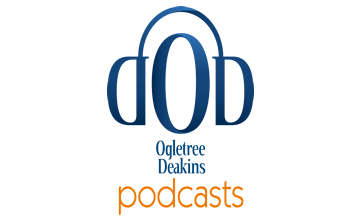Podcast: Play in new window | Download (Duration: 31:05 — 42.7MB) | Embed
Subscribe: Apple Podcasts | Spotify | TuneIn | More
In this episode of In The Breakroom, host Bill Grob (shareholder, Tampa) is joined by Melissa Bailey (shareholder, Washington, D.C.) to discuss the viral Coldplay concert scandal involving high-profile executives. Melissa and Bill discuss the implications of workplace relationships, the importance of HR integrity, and the legal ramifications for companies, including the PR and financial consequences of going viral. Tune in to hear their analysis on how employers should navigate these tricky situations and the broader impact on organizational trust and culture.
